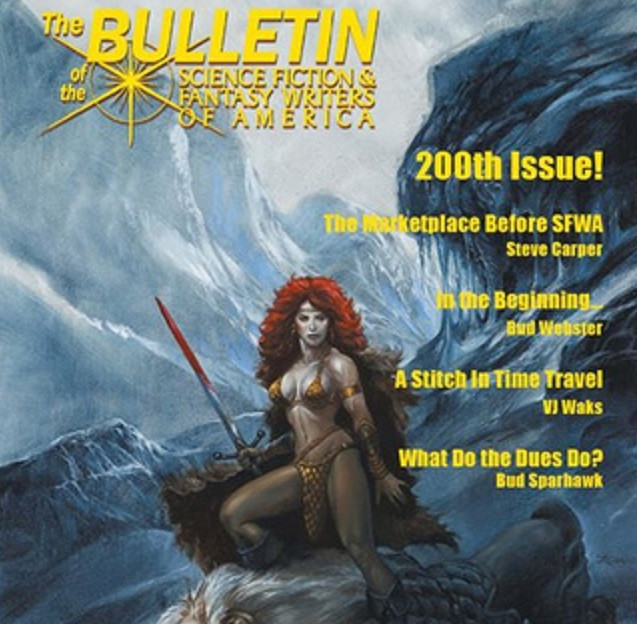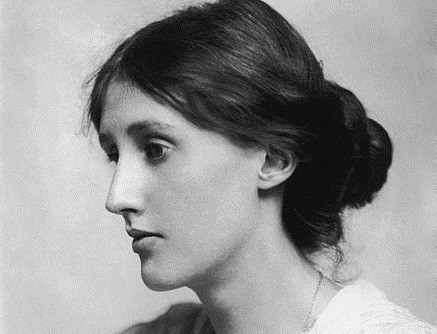Science Fiction Forum Shuns Women Writers: Warp Speed to the 'Assholocene Era'?

A conversation on a public science fiction forum has revealed that prejudice against female science fiction writers is still rife. Albeit among a minority of the community, several influential writers – and members of multi-national publishing firms – denounced the increase of vocal women and minorities in science fiction.
Sean P. Fodera, the associate director of contracts at Macmillan publishing, was one of the most outspoken commentors. Fodera, whose long and varied career in publishing began at Penguin Books in 1989, decried the argument made by a particular female writer who was campaigning for equality within the industry. Why? Because she had once posed for a photograph wearing some clothes.
Fodera laid into Mary Robinette Kowal, a Hugo-award winning author, for her feminist involvement in the equality movement. He wrote: "I find it very funny that she would jump on this bandwagon. For a long time, her website featured an array of photos of her in a diaphanous white outfit, posing on a beach. No metal bikinis or such, but they were not innocuous writer headshots either."

There are several things wrong with his statement. Firstly, any reasonable person could point out that feminists can have their picture taken – whether stark naked or wearing a dress made of ham. There is no meaning behind wearing a "diaphanous white outfit" on a beach, particularly any meaning that detracts from campaigning for equal gender representation in a literary forum. In his remark, Fodera has only managed reveal an embarrassing penchant for women in metal bikinis.
Secondly, he focused on Kowal's choice of beach attire - neatly avoiding lengthy list of successes that have warranted her place within the science fiction community. Her debut novel, Shades of Milk and Honey, was nominated for the 2010 Nebula Award for Best Novel.
In 2008, she won the Campbell Award for Best New Writer, and three of her pieces of short fiction have been nominated for the Hugo award. Her story For Want of a Nail won the prize in 2011. Fodera managed to point out she liked wearing "tight fitting gowns" at cons and award ceremonies.

Women writers have shaped science fiction since the genre began. Bible stories, before they became religious dogma, were allegedly penned by a woman – as Harold Bloom argues in The Book of J. The Garden of Eden, described in the second and third chapters of the Book of Genesis, was written by a woman. If we fast-forward to the modern day, JK Rowling has made millions with her fantasy fiction. Yet, still, the likes of Fodera continue to blight the progress of women in the genre.
Kowal instigated the discussion after coming to the end of her tether over the mistreatment of women in Science Fiction and Fantasy Writers of America (SFWA).
She revealed she had been called a variety of noxious names by "bigoted jerks" – who had complained the group's discussions were being censored by her condemnation of hate speech. She also noted that the abuse had been limited to a small group, who she described as a "dozen rabid weasels". Insulting, yes. But Kowal didn't attempt to invalidate the success of other members by discussing their sense of style.
On the list-serv threat, Webnews.ssf.net, another troll commented that Kowal was an actress who was "more feminist than thou" who catered for a "doctrinaire crowd". Another said she was part of a group of "whiny young writers" who were "going to take offence one way or the other". They added: "If not any of the –isms they currently oppose, then they'll manufacture offence so they can feel continually oppressed." I'm not sure if anyone would go to the trouble, really.
Perhaps the real issue is that female and minority writers continue to be marginalised by a small group of male authors. Feminism – as history has proved – has encouraged women to write incredible works of science fiction. Virginia Woolf's 1923 novel The Clockwork Man – written under the pseudonym of E. V. Odle – explores deep into social mores and hard science. Mary Shelley's Frankenstein launched hundreds of copycat stories and films.
Ursula Le Guin, who took inspiration from Tolkien, Gaiman, Tolstoy and the Bronte sisters, has won the Hugo Award, Nebula Award, Locus Award and World Fantasy Award – each one more than once. Octavia E. Butler, known for her Lilith's Brood, Patternist and Parable series, became the first science fiction writer to win the MacArthur Fellowship.
We may well be "manufacturing offence" over discrimination, but it seems more likely that sexist science fiction writers still exist. One user was spot on when he said palaeontologists of STWA would refers to this age was the "Assholocene Era".
© Copyright IBTimes 2025. All rights reserved.






















